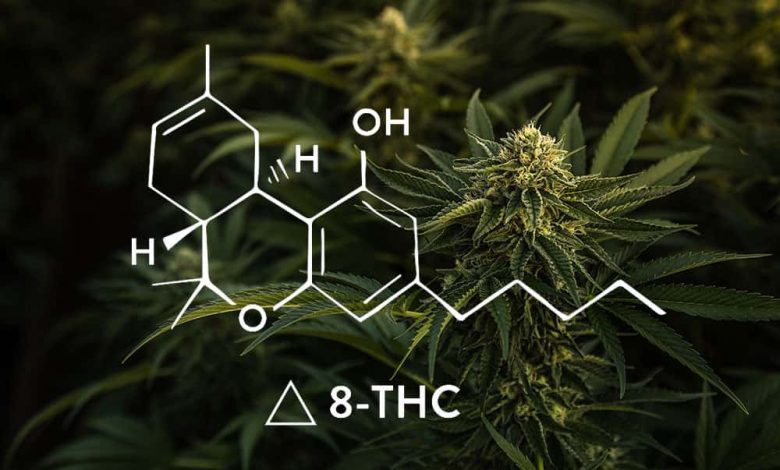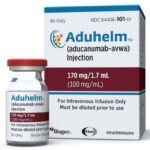Is Delta-8 THC Safe? Exploring the Controversy and Science

Delta-8 tetrahydrocannabinol (Delta-8 THC) has gained significant attention in recent years as a new player in the world of cannabinoids. It’s often touted as a legal and milder alternative to the more well-known Delta-9 THC, the psychoactive compound found in cannabis.
However, with its growing popularity comes a range of questions about its safety and potential effects. In this article, we will explore the controversy surrounding Delta-8 THC and delve into the scientific evidence to determine if it can be considered safe for consumption.
What is Delta-8 THC?
Before we discuss its safety, let’s begin with a brief overview of what Delta-8 THC is. Delta-8 THC is a cannabinoid found in both hemp and marijuana plants, but in much lower concentrations compared to Delta-9 THC. It is considered a close cousin of Delta-9 THC due to their similar molecular structures but with one critical difference. Delta-8 THC has a double bond on the 8th carbon atom, whereas Delta-9 THC has it on the 9th carbon atom. This small structural variation results in different effects and legal classifications.
The Legal Status of Delta-8 THC
The legal status of Delta-8 THC in the United States has been a subject of debate and confusion. In 2018, the Farm Bill was passed, legalizing hemp and hemp-derived products as long as they contain less than 0.3% Delta-9 THC. This legislation led to the belief that Delta-8 THC, derived from hemp, could be considered legal. However, the situation is not as straightforward as it seems.
The U.S. Drug Enforcement Administration (DEA) has issued several notices indicating that synthetic Delta-8 THC and Delta-8 THC extracted from hemp are controlled substances. The ambiguity in legal definitions and the varying state regulations make it challenging to determine the exact legal status of Delta-8 THC in different regions. This lack of clear regulation adds to the concerns surrounding its safety.
The Controversy
The controversy surrounding Delta-8 THC primarily revolves around two main areas: safety and regulation.
1. Lack of Regulation: The lack of clear regulations regarding Delta-8 THC’s production, sale, and use is a major concern. With the CBD industry booming, Delta-8 THC has quickly found its way into a variety of products, from edibles to vape cartridges. The absence of consistent quality control standards and oversight raises questions about the purity and safety of these products. This lack of regulation can result in subpar or even dangerous products reaching consumers.
2. Potential Health Risks: Another concern is the potential health risks associated with Delta-8 THC use. While it is often marketed as a milder alternative to Delta-9 THC, it is still a psychoactive substance, and consuming it can lead to impairments in cognitive and motor functions. Users may experience side effects such as anxiety, paranoia, dizziness, and an increased heart rate. The long-term effects of Delta-8 THC use, especially in higher doses, are not well understood, and more research is needed to determine its safety profile.
Scientific Research on Delta-8 THC
Despite the controversies and concerns, scientific research on Delta-8 THC is limited, and more studies are needed to draw definitive conclusions about its safety. However, we can explore some of the existing research to understand the current state of knowledge on this compound.
1. Psychoactive Effects: A study published in the journal “Life Sciences” in 2020 examined the psychoactive effects of Delta-8 THC in mice. The study found that Delta-8 THC produced psychotropic effects in a dose-dependent manner, similar to Delta-9 THC, but with fewer side effects. This suggests that Delta-8 THC may be less potent and have a reduced likelihood of causing anxiety and paranoia compared to Delta-9 THC.
2. Anti-Nausea and Appetite-Stimulating Properties: Delta-8 THC has been studied for its potential in alleviating nausea and stimulating appetite, much like Delta-9 THC. These properties may be particularly beneficial for individuals undergoing chemotherapy or suffering from appetite-related conditions. However, the research on Delta-8 THC’s effectiveness in this regard is still in its early stages.
3. Potential for Abuse and Dependence: A study published in “Substance Abuse” in 2021 examined the abuse potential of Delta-8 THC in rats. The study found that Delta-8 THC had a lower abuse potential than Delta-9 THC but still produced rewarding effects in the animals. This suggests that Delta-8 THC may have some potential for abuse and dependence.
4. Safety Concerns: An article in “JAMA“ (Journal of the American Medical Association) raised concerns about the lack of regulation and the potential for contaminants in Delta-8 THC products. It emphasized the importance of thorough product testing to ensure consumer safety.
Conclusion
The safety of Delta-8 THC remains a subject of controversy and debate. While there is limited scientific research on its effects, the available evidence suggests that Delta-8 THC may have milder psychoactive effects compared to Delta-9 THC, with potentially fewer side effects. However, the lack of regulation and oversight in the production and sale of Delta-8 THC products raises significant concerns about product quality and safety.
Consumers interested in trying Delta-8 THC should exercise caution and do thorough research on the products they intend to use. Choosing products from reputable manufacturers that conduct rigorous testing for potency and contaminants is crucial.
Ultimately, the safety of Delta-8 THC will depend on a combination of further scientific research, clear regulation, and responsible consumer choices. As the landscape of cannabis and cannabinoid products continues to evolve, it is essential to stay informed and make informed decisions regarding their use.





